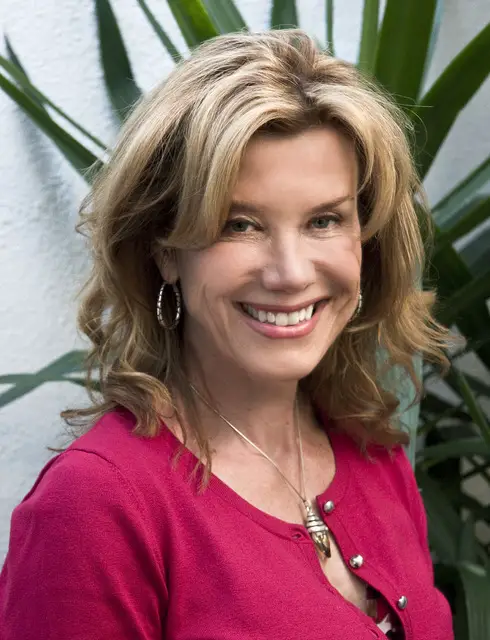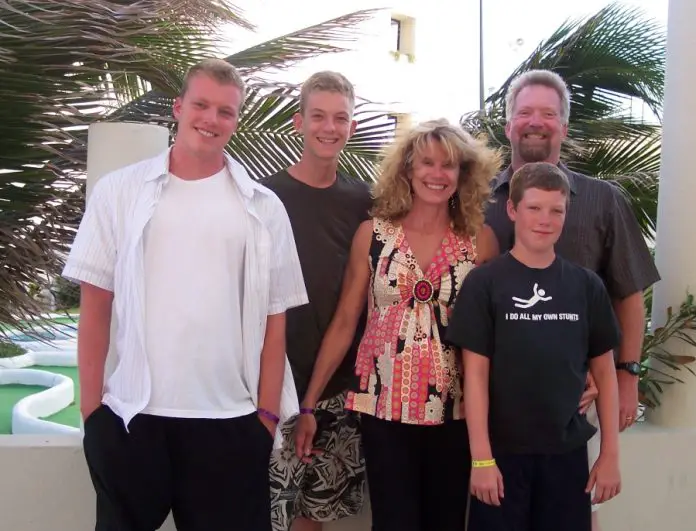This summer, whilst having a lovely break on a tiny Greek island, I was delighted to be asked by expat Sonia Marsh, author of Freeway to Flipflops if I would like to review her book. I jumped at the chance.
Review copy of book provided free of charge by author.
My initial contact with her was through her Facebook Page, Gutsy Living. As a ‘struggling author’ and expat myself, Sonia has been a source of invaluable advice and her support in my venture to complete and release my own book has been unwavering.
I had many questions to ask her about her year living as an expat with her family in Belize. Sonia very kindly agreed to be interviewed. Sonia will also follow up at the end of October with a little post for the League of Expat Writers.
See the video interview Sonia kindly did for me.
Here’s the transcript:
You made reference throughout the book that you consider yourself an international person, having been born in Denmark, schooled in the UK and lived in Paris & Nigeria. The latter country must have been difficult to get used to, therefore you have some familiarity with the trials and tribulations of living in a developing country. It seemed that the trials and tribulations of living in Belizewas something you never got used to.
Why do you think this was so difficult for you?
First of all, when I lived in Nigeria, I was a child. Forty years later, as a mother and a wife, living in Belize was completely different.
I have 8 different themes about what made our life challenging in Belize:
Food
With three sons, it was such a challenge to get enough food. Often the stores didn’t have fresh dairy, so we drank powdered milk. Cheese, ice cream, fresh meat, fresh bread, cereal, and other items were not always available.
Water Supply: We couldn’t drink the well water in our hut, nor could we drink the rain water in our cistern, in the second house we moved to on the island. We had to transport 5 gallon plastic bottles of water from town, and were dependent on our boat for transportation. Not easy to carry from the shop to your boat. Also we couldn’t shower when we had a drought.
Bugs
We had to get used to giant ants, scorpions, iguanas, cockroaches, spiders, and could not leave any food, not even rice, pasta or flour in a bag. Everything had to be sealed in hard plastic containers.
Locals
At first we trusted everyone and thought locals were friendly, but after several months, we understood what others had told us, “It takes several years before you know whom you can trust.”
Expats
I was naïve to believe we could trust other expats, and soon realized that making a living in Belize is not so easy, so you have to beware of those who are truly your friends, and those who “pretend” to be your friend.
Safety
As in many developing countries, there is quite a lot of theft; for example boat engines, bikes, generators, computers, etc. There is far more crime than where we live in Orange County, and there were times when I grew afraid of being alone in the house at night, when my husband left on trip back to the U.S.
Hurricanes
We were often threatened by storms which could easily turn into destructive hurricanes. I was watching the weather on my computer all the time, especially between June and November, hurricane season.
Transportation
Often I felt stuck in the house as we lived 5-miles north of town and did everything by boat. There were no cars or roads up north, so I would not be able to take off, unless I wanted to ride my bike along the sand. I tried to drive the boat but often Belizean men would try to intimidate female drivers by heading straight towards them. I only saw a couple of women drive boats there.
You have moved back to Southern California.
Do you miss Belize at all and if so, what about it do you miss?
Yes, there are many things I miss, in particular, the beauty of the Caribbean turquoise water, the colorful fish and coral heads, the sounds of birds, the parrots in the trees, the lack of traffic, planes, sirens, people. I miss the gorgeous clear skies with all the shooting stars, Little Juan, the four-year-old whom my sons adopted as their little brother.
I miss the slow pace of life and the lack of rushing around.
You seemed determined to escape the materialistic lifestyle of the USA, even making reference to the fact you felt ‘brainwashed’.
Do you feel that now?
I don’t feel brainwashed, except for the news media coverage in the U.S. Apart from that, I know that “stuff” is just “stuff” and the less I have, the easier it is for me to uproot and have another adventure.
I don’t want to feel tied down to a house or a place, so I prefer having less clutter and really don’t care what people say or think.
What, about the USA, do you appreciate now?
I think the U.S. is a wonderful place for someone to start their own business.
I believe there are many opportunities to become an entrepreneur in the U.S.that may not be as easy in other parts of the world. You just have to put in the effort. I also feel safe where I live, and don’t worry about theft, or being mugged.
What would you change this time round if you went back to Belize, or a different island? Would you, for example, spend more time adapting to the character and culture of the people? It seemed throughout the book there was a constant struggle to get used to this, even fear.
I think the secret to living on an island or in a developing country is to not start a business.
If things had worked out as we originally planned: establishing an internet business with U.S. clients, we would not have faced the problems we had with our neighbors, and the locals not wanting competition. As an author, I’d love to write a second book in Panama. I would prefer to relax, get to know the locals, and not feel like I had the pressure of coming up with a business that would succeed.6) Life on ‘desert island’ is not all sunshine and sand, as you discovered. Which member of your family do you feel benefitted the most from the Belize experience?
Despite you mentioning that my oldest son benefitted the most (below), I think we all benefitted in different ways.
I know I changed a lot more than I expected. I realized that stress can follow you wherever you go, even when you think you’re in paradise, which therefore led me to the realization that paradise is not necessarily a physical location, but a state of mind. I also grew up in Belize, despite being in my mid-forties when I lived there. My husband and I downsized when we moved back, and didn’t care what our neighbors thought about our old cars, our old kitchen, etc. I realized where we lived in OrangeCounty was competitive, but in a different way than Belize.
I suspect the answer above is your eldest son. What changes have you noticed in him now, as a young adult?
My son became focused on his studies, and realized how lucky he was to go to school and University, since Belizeans treat education as a “privilege,” not a “right.” He is now a mechanical engineer with a good job in California.

Many thanks Sonia! “Freeway to Flipflops” was an eye opener for me to read being a young, British expat myself living in Athens, Greece. I found myself starting to relate to some of the things in your book: cultural differences, learning ‘island time’ (or Greek time, in my case) but above all, your book helped me realise that to survive in a culture other than one’s own, I really need to ‘localise’ and try not to enforce my Britishness. Just ‘go with the flow.’
Follow Sonia on Twitter, her Facebook Page and also her blog. She’s always keen to hear from people with similar experiences and help out fellow authors.
“Freeway to Flipflops” can be purchased from Amazon UK or Amazon US


Sonia,
It was a pleasure. Thanks for taking the time to answer my questions and I loved the book.
Looking forward to receiving my copy!
:0)
Glad you enjoyed it Helen. I enjoyed reading the book and having the opportunity to ask the burning questions that came to mind as I read.
Bex,
I enjoyed your questions. I can tell they come from an expat herself. thanks for hosting me on your revamped blog.
Nice one, Bex. Interesting experience. Love your blog by the way. It’s really fresh.
Helen,
I just stopped by your blog to read your travel story about Hamman sisters. I enjoyed reading it, especially learning about different cultures. Hope you submit your own, “My Gutsy Story” on my blog.
Fabulous interview Sonia and Bex! The questions offered a whole new perspective about your experience in Belize, Sonia. The more I learn about your story, the more fascinated I am. Thank you both.
Kathy,
Thanks so much for coming over. I love the way I’ve been lucky to focus on different questions from around the world.